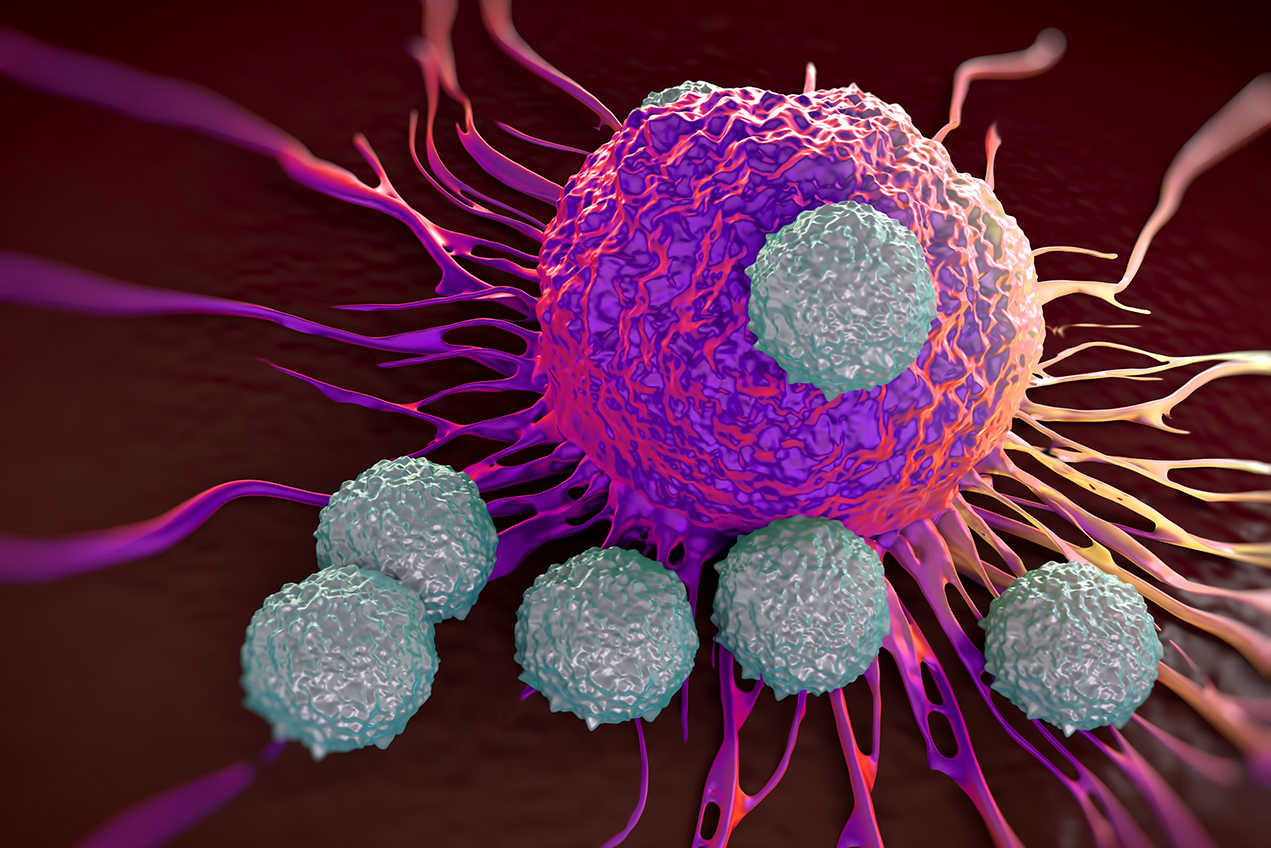Chintan Parekh, MD, of the Keck School of Medicine of USC and The Saban Research Institute of Children’s Hospital Los Angeles, has led a team of investigators that generated a comprehensive roadmap for how T-cells develop in the human thymus. The study was published in the journal Immunity on June 16.
T-cells are a type of white blood cell involved in immune response — fighting off invaders like pathogens or cancer cells. Understanding human T-cell development is crucial for treating diseases arising from abnormalities such as leukemia and immunodeficiencies. It is also critical for developing highly effective immunotherapies like CAR-T.
“While most previous studies have been done in mice, our study specifically reveals a high-resolution picture of human T-cell development,” Parekh said. “Because of the biological differences between species, it’s critical to specifically study human T-cells in order to generate the information we need to understand human disease and to design novel immunotherapies.”
Using single-cell sequencing technology to study cells isolated from human thymic tissue, the investigators mapped the various stages of T-cell development in the human thymus, including the multitude of genes that switch on or off at each stage. They charted the different developmental routes that the most immature cells in the thymus may take as they progress to maturity and discovered stages of development and patterns of gene activity unique to humans.
This knowledge could lead to greater insights into diseases arising from T-cell deficiencies or abnormal T-cells such as type 1 diabetes, rheumatoid arthritis and certain types of leukemia.
The findings could also help in the advancement of immunotherapies like CAR-T therapy, regarded as one of the most significant advances in cancer treatment. A greater understanding of T-cell development is also needed to advance treatments to expedite recovery of the immune system in patients who have undergone bone marrow transplantation for treatment of cancer and other diseases.
The single cell data for developing T-cells is available on the National Center for Biotechnology Information (NCBI) gene expression omnibus (GEO) database. This public genomics data repository ensures that other researchers have access to the data so they can learn more about which genes regulate T-cell development and use that knowledge to understand T-cell diseases and design new immunotherapies.
Additional study authors include lead authors Justin Le and Jeong Eun Park, Vi Luan Ha, Annie Luong and Fan Li of Children’s Hospital Los Angeles; Yong-Hwee Loh, PhD of the University of Southern California; Sergio Branciamore, Andrei Rodin and Grigoriy Gogoshin of City of Hope National Medical Center; and Robert Welner, Virginia Camacho and Sweta Patel of the University of Alabama at Birmingham.
Funding for this study includes the St. Baldrick’s Foundation, the Nautica Foundation, the Shirley McKernan Courage Foundation, Couples Against Leukemia, Hyundai Hope on Wheels and SHARE Inc.
— Ellin Kavanagh


